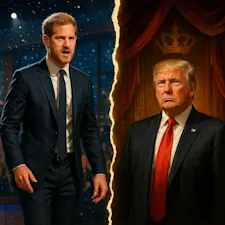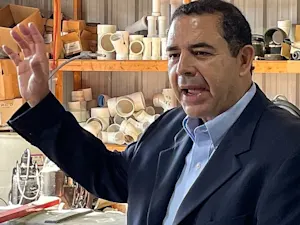
DOJ Battles NBC: Epstein Associate Names Stay Sealed
Attorney General Pam Bondi, 2025. Photo courtesy of the United States Department of Justice. Public domain.
The Department of Justice has recently taken a firm stance to keep the names of two Jeffrey Epstein associates sealed, reigniting debates over transparency and justice in one of the most notorious sex trafficking cases in recent history. These two individuals, who reportedly received a combined $350,000 from Epstein in 2018, remain anonymous in court documents as the Department of Justice argues their privacy rights must be protected, even as victims and media outlets push for disclosure.
Department of Justice's Legal Maneuver to Maintain Secrecy
The controversy centers on payments made by Epstein shortly after the Miami Herald published a series of investigative reports that renewed scrutiny of his 2008 plea deal. One associate was reportedly wired $100,000, and the other $250,000 from a trust account controlled by Epstein. Federal prosecutors have described these individuals as alleged "co-conspirators" in Epstein's arrest for soliciting sex from a minor, and the plea agreement reportedly included a promise that they "would not be prosecuted," according to The Daily Beast.
In August, NBC News formally requested that U.S. District Judge Richard Berman unseal the names of these associates, arguing that with Epstein deceased and criminal proceedings concluded, the public interest in transparency outweighs privacy concerns. However, the Department of Justice reportedly responded with a letter from Jay Clayton, U.S. attorney for the Southern District of New York, insisting that the two individuals have not waived their privacy rights and have expressly objected to the release of their names and personal information. Clayton emphasized that these are uncharged third parties whose privacy interests remain intact, and their objections are supported by sealed letters submitted to the court.
Judge Berman gave NBC News a deadline of Sept. 12 to respond to the Department of Justice's request to keep the names secret. As of now, no ruling has been made on whether the names will be unsealed.
Victims and Advocates Demand Transparency
The Department of Justice's push to keep these names sealed has drawn sharp criticism from Epstein's victims and their advocates. Two survivors of Epstein's sex trafficking ring submitted letters to the court expressing frustration with the Trump administration's handling of the case. One victim reportedly accused the Department of Justice and FBI of prioritizing the protection of wealthy associates over justice for survivors, stating that the government appears more focused on "scrubbing" the names of powerful men from the files than on supporting victims or combating child exploitation, as reported by the New York Post.
The other victim reportedly condemned the Department of Justice for meeting with Ghislaine Maxwell, Epstein's convicted accomplice, rather than consulting with survivors. This meeting, followed by Maxwell's transfer to a minimum-security prison, intensified suspicions that the administration was shielding Epstein's inner circle. The victims called for an independent third-party review of any redactions to ensure that no victim identities or likenesses are inadvertently revealed, underscoring the delicate balance between privacy and accountability.
Background on the Payments and Legal Context
The payments to the two associates became public knowledge after Epstein's 2019 indictment and arrest in New York. Prosecutors reportedly cited these payments as part of their argument against Epstein's release on bail, fearing he might tamper with witnesses. The timing of the payments — just days after the Miami Herald's investigative series — suggested to prosecutors that Epstein was attempting to influence co-conspirators who might provide information against him.
Attorney General Pam Bondi had initially promised to release a cache of Epstein documents that would reveal more about his crimes and connections. However, she later backtracked, citing a memo from the FBI and Department of Justice stating that Epstein did not maintain a "client list" of associates who abused minors, contradicting widespread speculation, as reported by The Daily Beast. This reversal caused an uproar among Epstein's supporters and victims, who viewed it as a betrayal of the promise for transparency.
The Ongoing Struggle Between Privacy and Public Interest
The Department of Justice's insistence on keeping these names sealed highlights the ongoing tension between protecting individual privacy and the public's right to transparency, especially in cases involving high-profile figures and sensitive allegations. The two associates remain uncharged, and the Department of Justice argues that their privacy interests must be respected, but victims and advocates see this as another example of how the powerful can evade full accountability.
For the public, the fight over these names is a stark reminder of how secrecy can shield power even after a criminal's death. The Epstein case continues to expose the challenges in balancing justice, privacy, and transparency in a system where influence and wealth often complicate the pursuit of truth.
As the legal battle unfolds, the question remains: will the court side with the Department of Justice's privacy concerns, or will it grant the public access to the identities of these associates, shedding more light on Epstein's network? The answer will have significant implications for how justice is served in cases involving the elites and their alleged enablers.
References: DOJ Asks Judge to Keep Name of Two Epstein Associates Secret | Jeffrey Epstein victims rip FBI, DOJ over handling of case -- claim 'wealthy men' being protected | DOJ says names of two associates Epstein wired $100K and $250K should stay secret






















